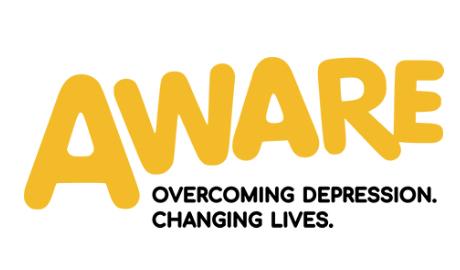The Benefits Of Practicing Mindfulness
Mental HealthMindfulness is a form of meditation with its roots in Buddhism. It helps you develop skills and techniques to cope with the daily challenges a busy life can bring such as stress and anxiety. It involves making a special effort to give your full attention to what is happening in the present moment – and to what's happening in your body, your mind and/or your surroundings.
Caroline Stewart, Mindfulness practitioner for AWARE told us, "Coronavirus has the potential to have a devastating effect on our lives and it is understandable that people are feeling anxious, uncertain about what to do and perhaps having to isolate themselves. Mindfulness can help us step back from being lost in our thoughts. We learn how to appreciate each moment and it shows us a different way to relating to and coping with sensations, emotions, thoughts and feelings”.
What are the benefits of practicing mindfulness?
Mindfulness is recommended by the National Institute of Clinical Excellence as a technique to reduce stress and prevent the recurrence of depression. It is a tool that, when used effectively, can bring many benefits including:
- Reduced Stress: mindfulness increases ability to cope with higher stress levels causing less emotional exhaustion.
- Improved mood: practicing mindfulness for even 5 minutes a day can significantly improve your mood by helping you respond more enthusiastically to change and embrace challenges more dynamically. Flexibility and adaptability are imperative to contributing positively to challenges encountered in everyday life.
- Reduced feeling of loneliness: practicing mindfulness can help you put things into perspective which can increase compassion and resilience whilst reducing feelings of loneliness.
- Improved sleep: have you noticed your sleeping pattern has changed whilst adjusting to this new normal? Practicing mindfulness can help you manage the chatter in your mind as you drift off to sleep.
Mindfulness Resources
If you are already a mindfulness advocate or if you’re a complete beginner there is no better time to get involved. We have put together some of the great resources out there to help you along your mindfulness journey...
NHS have some great tips to get you started, they suggest you can begin to practice mindfulness by simply noticing what is happening around you and learning something new such as yoga or walking, click here to check it out.
Helpguide also have a great 10 minute mindfulness meditation with music, click here to check it out.
Lastly, there are a wide range of apps available on your smartphone that can help you practice mindfulness, some are even giving free access during the Coronavirus pandemic:
- Headspace are offering free access to “Weathering the Storm” collection including mediation, sleep and movement exercises.
- Balance are offering free one year access to meditation exercises.
- Breethe are offering a free collection of meditations “Inner wellness during Coronavirus”.
- Calm are offering free meditation resources during Coronavirus.
We hope these resources will help you start or continue your mindfulness journey, no matter how you want to practice mindfulness it's important to note that it's okay to let your thoughts and worries come into your mind every now and again. Practicing mindfulness will help you notice when negative thoughts are taking over and will help you control them, allowing you to reap the many benefits. If mindfulness isn't for you that's okay too! Do what works for you.







































































































































